 Vampire Weekend's Surprising Jewish Stories
Vampire Weekend's Surprising Jewish Stories
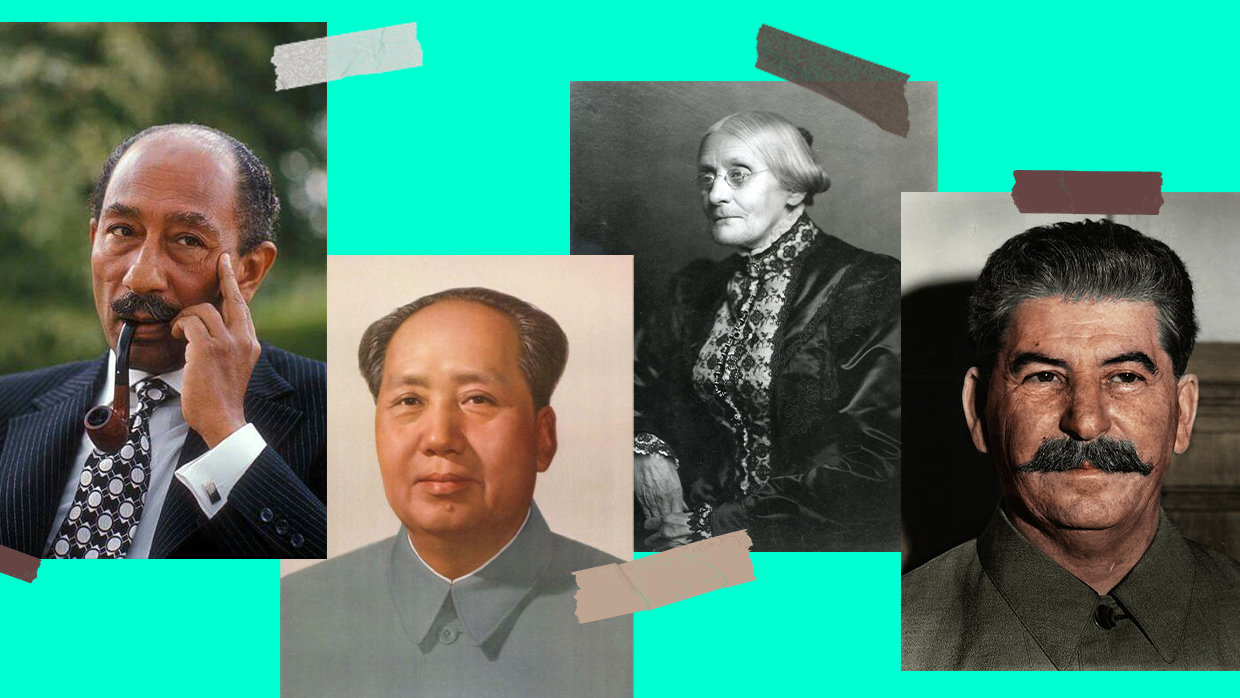

9 min read
Which of these seminal figures were good or bad for the Jews?
History’s most influential figures have left an incredible mark on the globe, but their impact on the Jewish People isn’t always so easy to discern. Which of these figures were good or bad for the Jews?
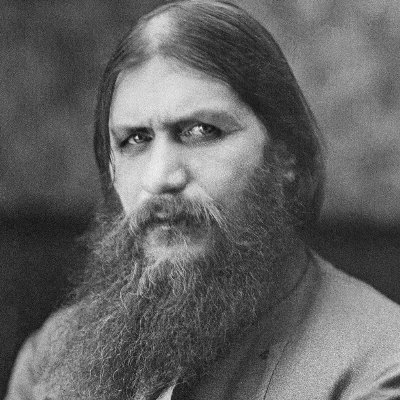
Rasputin was not only a friend to the last Tzar of Russia, Nicholas II and his family, he was also a confidant and advisor. History has generally painted him as a manipulative villain, a mystical monk responsible for the fall of the Russian monarchy. But how was he for the Jews of Russia?
Good
Rasputin may have been painted as the bad guy in Russian history because he came from poverty and thus clashed with the Russian Aristocracy. Nicolas II’s inner circle had a deep aversion to Jews, but despite this, Rasputin’s progressive ideas lead him to advocate for equal rights for peasants, the impoverished, and the Jews. Though Rasputin was regarded as a wise mystic, he was uneducated and may have even been illiterate. However, he had some help in his position of power. Jewish business manager Aron Simanovich handled many of his affairs as his secretary. In Simanovich’s memoirs, he reveals that Rasputin’s views for social and economic change clashed with the nobility.
But social equality wasn’t his only contribution to Jewish society. Rasputin spoke out against the pogroms and lambasted those seeking to make Jews into scapegoats. He was even known to warn Jewish communities of impending attacks. In 1910, 307 Jewish dentists had been charged with only becoming dentists so they could obtain domicile rights to live outside the Pale of Settlement. Rasputin spoke on their behalf, saving them from execution.
In 1913, Rasputin stood up for Mendel Beilis when he was put on trial for killing Christians to make Passover matzah (the quintessential Blood Libel.) Rasputin also petitioned the Tsarina to allow Jewish students to attend school and Universities despite quotas, and helped free a Jewish doctor from captivity in Germany during the first World War.
Some accounts paint Rasputin almost as a saint, claiming he never took a penny for his services. But Simanovich’s account mentions Rasputin would frequently take bribes from wealthy Jews to speak to Tzar Nicholas on their behalf. Either way, he left the Jews in a better place than had he not been in the Tzar’s circle.
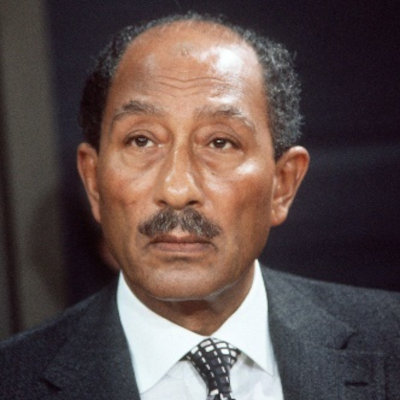
In the early years of his career, Sadat was considered a terrorist. As President of Egypt, he led other Arab countries to war against Israel, including the Yom Kippur War which brought the nation to its knees. Sadat is also quoted as praising Adolf Hitler saying, “My dear Hitler, I admire you from the bottom of my heart.” Surely, this Arab ruler was terrible for the Jews. Or was he?
Good
Sadat’s attack on Israel was never intended to win the Yom Kippur War. He was actually playing the long game. After establishing Egypt in a much stronger position of power, Sadat was now set up to make a bold move. Sadat believed that if he could make peace with Israel, it would pay tremendous "dividends."
After Menachem Begin was elected Prime Minister, he made the unusual declaration that he was open to negotiating peace with any Arab nation who would reciprocate. Sadat responded unexpectedly while addressing the Egyptian parliament in 1977. It was there he announced a willingness to negotiate with the Israelis, even going so far as to speak in front of the Israeli Knesset.
Eight days later, Sadat stood in Israel addressing the Knesset and shook Begin’s hand. A year later, at the 1978 Camp David accords, the two sides negotiated for peace resulting in Israel returning the Sinai Peninsula to Egypt, but Sadat let up on pressuring Israel to give back the West Bank. The final treaty was signed with Jimmy Carter in 1979, but not before Sadat was awarded the Nobel Peace Prize along with Menachem Begin.
The treaty was a turning point in Israeli foreign relations. For a nation born into almost perpetual war on all borders, the importance of Egypt becoming an ally cannot be overstated. Unfortunately, Sadat’s actions would come with a price. In 1981, Sadat was assassinated by Muslim fundamentalists.
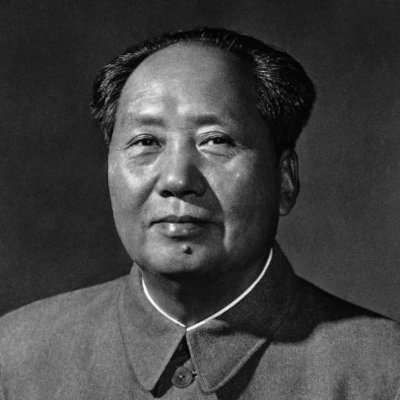
After the Chinese Communist Revolution ended in 1949, Mao Zedong became the leader of the People’s Republic of China. During this new phase of China’s history, Chairman Mao amassed land from warlords and made them into communes, elevated women’s status in society, and put major effort into the nation’s literacy. But it wouldn’t be long before paranoia took over the ruler and he resorted to oppressive policies that silenced dissenters and led to the starvation of tens of millions.
History has branded him tyrannical and inept. But did he have any connection to the Jewish people? If so, was it for good or for bad?
Bad
For the most part, Mao had very little interaction with the Jewish People as an entity. However, strangely enough, Jews seemed to have more interaction with him. For centuries some Jews had escaped European persecution by fleeing to China and building a modest Jewish community in Shanghai. But during the communist takeover in 1949 most left. However, a few foreign nationals found themselves in China, but serving in Mao’s government and even his inner circle. Jakob Rosenfeld was the commanding officer of the Communists 4th Army’s medical unit; Israel Epstein served as the head of international public relations; David Crook was the dean of the Beijing Foreign Languages University, and Sidney Rittenberg who was a personal advisor to Mao and other leaders. It turns out that almost 90% of non-Chinese citizens helping the Communist party come to power in China were Jewish.
Unfortunately, many of these nationals fell from grace, as Rittenberg found himself jailed twice. David Crook was jailed in 1967, Epstein was imprisoned and put in solitary confinement. So things didn’t work out very well for these Jewish members of Mao’s government. But how was Mao himself?
In the early 1950s, it seemed that China and Israel were ready to establish diplomatic relations. But when the Korean War broke out, any hope for negotiations came to a screeching halt and China practically ghosted Israel. After that, China decided to seek relations with the Arab world. As Mao’s number two man Chou En-lai said in 1964, “We are ready to help the Arab nations regain Palestine. We are willing to give you anything and everything, arms, and volunteers.” In the 1960s, Prime Minister Levi Eshkol would try to establish relations via correspondence regarding the Nuclear Test Ban Treaty, but neither Mao or Chou ever responded.
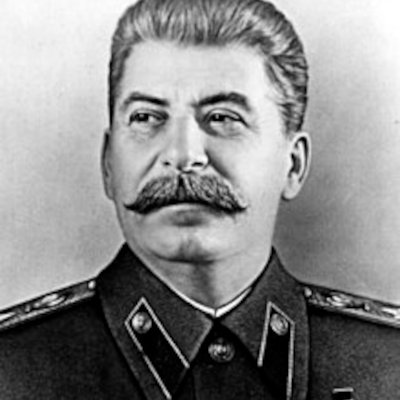
One of history's most oppressive dictators, Joseph Vissarionovich Stalin seized the land of the poor, killed anyone he perceived as a threat, cultivated a cult leader persona, and sent over 20 million Soviet citizens to the gulags. Given all that, how much worse could he have been to the Jews? By comparison was he good or bad?
Bad
Early on, Stalin regarded the Jews rather well. He instituted Russian policy which promoted Yiddish cultural activities (i.e. with the Habimah repertory theater in Moscow). However, he did not tolerate Zionism and worried the sentiment might infect the next generation of Soviet Jews.
Stalin frequently addressed the “Jewish Question.” In 1913, he denied that Jews were ethnically a singular national entity and supported Lenin’s aim for progressive assimilation, pushing for the disappearance of Jewish culture. Almost 25 years later, during the Great Purge, he eradicated Yiddish school, publications, and other cultural institutions. Jewish victims of the purge – the Zinovievs, Kamenevs, and Radeks – were dishonored, but interestingly enough not specifically as Jews, but instead as Western agents.
During the Soviet alliance with Germany, Stalin extradited German communists who had sought refuge to the Soviet Union back to the Nazis, many of whom were Jewish. After the war, Stalin was given a plan recommending the resettlement of many returning Jewish refugees in Crimea. He refused the plan, seeing it as a step towards Zionism and a security risk for the Soviet Union.
Stalin’s distaste for Zionism unexpectedly seemed to diminish with the founding of the modern State of Israel. He was resolute and energetic in his support during 1947-48, as he sent weapons from Czechoslovakian arms factories to the fledgling country. But seemingly overnight, his support waned and his attitude turned violently hostile. The final remaining Jewish institutions in Russia became the targets of complete liquidation. Mass arrests of Jewish artists, writers, intellectuals, and professionals were conducted as the dictator’s obsession with Jewish conspiracies overwhelmed the country.
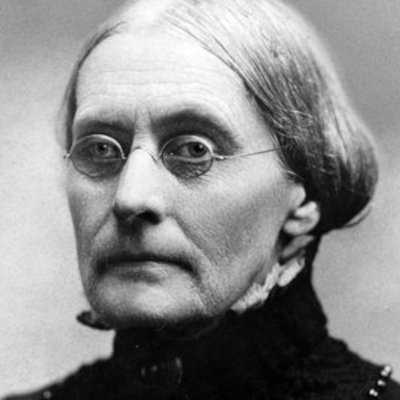
Anthony led the charge for women’s rights through speeches, writings, activism, and even found herself on trial for her actions. She was an educated woman with a vision to build a movement. But was this champion of rights seeking equality for all? Or did she vilify the Jewish people as a stepping stone for prominence? Was she good or bad for the Jews?
Good
Many in the suffrage movement were documented as using pejorative terms for Jews, even bordering on antisemitic rhetoric. But Susan B. Anthony was not one of them. Why not?
One of the figures Anthony drew inspiration from was a woman named Ernestine Rose. A predecessor to Anthony in the women’s rights movement, Rose was an outspoken orator for not only feminism, but free thought and abolition. The daughter of a Rabbi, Rose was an immigrant from Poland who had been taught Talmud by her father. Ironically, Rose declared herself an atheist, but couldn’t escape her Jewish roots, frequently being introduced as “of the Jewish faith.”
When suffragist Lucy Stone complained to Anthony that Rose’s “face [was] so essentially Jewish”, insisting she wasn’t fit to represent the movement, Anthony proudly hung a portrait of Rose in her office among her other models of inspiration. Rose’s influence on Anthony is unquestionable.
Anthony also allied herself with Jewish feminists Hannah Greenebaum Solomon and Fannie Rosenberg Bigelow. Anthony included Jews in her pursuit of universal human rights, forming bonds and speaking before the local Jewish Council and Sisterhood of Berith Kodesh, and Congregation Emanu-El of San Francisco. It’s clear that Anthony cared as much about her Jewish sisters as anyone else she fought for.

The question is not whether these people were good or bad for the Jews; then why G-d allowed the Jews to suffer wars, pogroms, holocausts, and antisemitism. G-d had promised to enter Cannan, a land of peace, milk, and honey. The answer to this enigma is found in Deuteronomy 31:16-18. See the synagogue floors and walls with idols, sun gods, and cosmic symbols. The Jewish people turned to idol worship.
Has this sight become woke…or is it just me?
STALIN SAVED ABOUT A MILLION JEWS FROM HITLER BY ALLOWING JEWS FROM POLAND AND THE BALTICS TO RETREAT WITH THE RUSSIAN ARMIES. THE JEWS WERE KEPT ALIVE DURING THE WAR AND AT THE END WERE ALLOWED TO LEAVE.
ALL OF THE WESTERN DEMOCRACIES TOGETHER DID NOT SAVE MORE
On the other hand, Stalin was planning to organize pogroms and send the Jews to Siberia. Only his death on Purim 1953 foiled his plan
Look up Stalin's Doctors' Plot in 1953.You can find out about the charges that were levied against the Jewish Doctors, if you look.